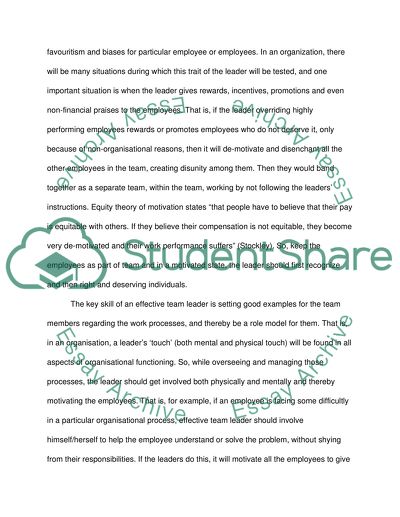Cite this document
(“Effictive leadership skills,Task 1: Discuss the characteristics and Essay”, n.d.)
Effictive leadership skills,Task 1: Discuss the characteristics and Essay. Retrieved from https://studentshare.org/miscellaneous/1574334-effictive-leadership-skillstask-1-discuss-the-characteristics-and-skills-of-an-effective-team-leader
Effictive leadership skills,Task 1: Discuss the characteristics and Essay. Retrieved from https://studentshare.org/miscellaneous/1574334-effictive-leadership-skillstask-1-discuss-the-characteristics-and-skills-of-an-effective-team-leader
(Effictive Leadership skills,Task 1: Discuss the Characteristics and Essay)
Effictive Leadership skills,Task 1: Discuss the Characteristics and Essay. https://studentshare.org/miscellaneous/1574334-effictive-leadership-skillstask-1-discuss-the-characteristics-and-skills-of-an-effective-team-leader.
Effictive Leadership skills,Task 1: Discuss the Characteristics and Essay. https://studentshare.org/miscellaneous/1574334-effictive-leadership-skillstask-1-discuss-the-characteristics-and-skills-of-an-effective-team-leader.
“Effictive Leadership skills,Task 1: Discuss the Characteristics and Essay”, n.d. https://studentshare.org/miscellaneous/1574334-effictive-leadership-skillstask-1-discuss-the-characteristics-and-skills-of-an-effective-team-leader.


